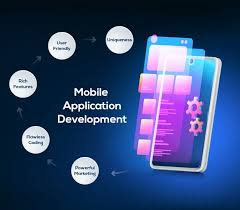Introduction:
- Introduce the topic of app development and its significance in today’s digital world.
- Mention the growing demand for mobile applications across various industries.
- Preview the content covered in the blog post, which will guide readers through the app development process from conception to launch.
- Idea Generation:
- Discuss strategies for generating app ideas, such as identifying pain points, conducting market research, and leveraging personal experiences.
- Highlight the importance of validating app ideas through user feedback, competitor analysis, and market trends.
- Planning and Research:
- Explain the significance of creating a detailed project plan, including defining goals, target audience, features, and technical requirements.
- Discuss the importance of conducting thorough research on the target market, user demographics, and competitor landscape.
- Design:
- Explore the importance of app design in user experience (UX) and user interface (UI).
- Discuss best practices for designing app wireframes, prototypes, and mockups using tools like Adobe XD, Sketch, or Figma.
- Highlight the principles of good design, including simplicity, consistency, and accessibility.
- Development:
- Introduce different app development approaches, including native, hybrid, and cross-platform development.
- Discuss popular programming languages and frameworks for building mobile apps, such as Swift/Objective-C for iOS and Kotlin/Java for Android.
- Explain the role of app development tools, IDEs (Integrated Development Environments), and SDKs (Software Development Kits).
- Testing and Quality Assurance:
- Highlight the importance of testing app functionality, usability, and performance across various devices and platforms.
- Discuss different testing methodologies, including manual testing, automated testing, and user acceptance testing (UAT).
- Introduce tools and frameworks for testing mobile apps, such as Appium, XCTest, and Espresso.
- Deployment and Distribution:
- Explain the process of preparing an app for deployment to app stores (e.g., Apple App Store, Google Play Store).
- Discuss app store guidelines, submission requirements, and review processes.
- Highlight strategies for app promotion, marketing, and user acquisition.
- Post-Launch Maintenance and Updates:
- Emphasize the importance of ongoing maintenance, support, and updates for ensuring app stability, security, and performance.
- Discuss strategies for collecting user feedback, analyzing app metrics, and iterating based on user insights.
- Monetization Strategies:
- Explore different monetization models for mobile apps, such as freemium, in-app purchases, subscriptions, and advertising.
- Discuss considerations for choosing the right monetization strategy based on app type, target audience, and business goals.


